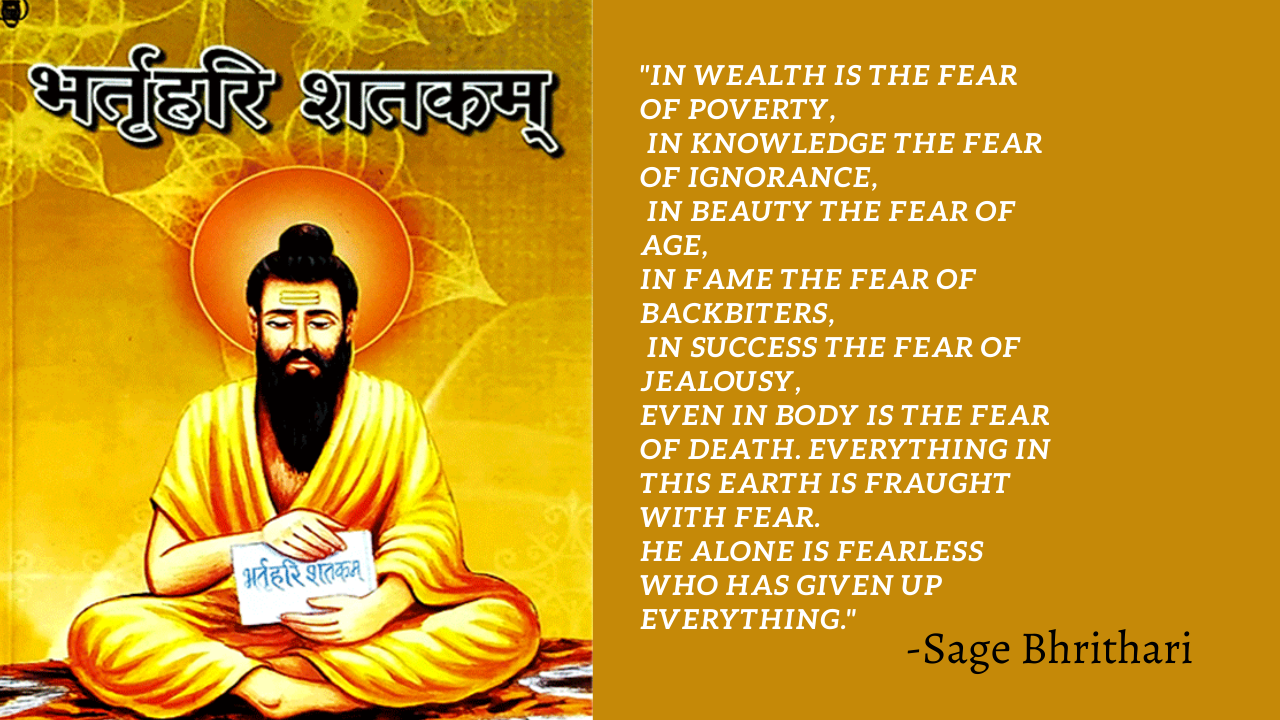Stoicism :- How to Turn Sadness into Strength.
Sadness is overwhelming.
Unpleasant events in life spark sadness. It is when the mind is completely attacked by fears, weaknesses, regret and depressive thoughts.
It can be difficult to process sadness. People often try to numb it, avoid it, or deny that they’re even experiencing it, instead of better understanding and working through the emotion.
The question is - How to BE with suffering? How to embrace sadness? Humans are hardly taught this in life. We don't know how to sit and be with suffering.
Stoicism is all about understanding what's in our control and what's not in our control.
I can't control that an emotion emerges from me, but I can control how I relate to the emotion itself. It's the capacity to be with the feeling, to be with the emotion as it arises and simply watch it, not fix it. And if we can learn to be with both ourselves and with our fellow human beings within their suffering, I think we can actually learn how to transcend suffering.
Hence, today we shall take refugee in a great Stoic philosopher, Marcus Aurelius, who was actually a Roman Emperor himself. Our source of knowledge will be a book written by Aurelius himself - named Meditations.
Before dwelling into his amazing insights on distress and weaknesses, it is very interesting to note how this book Meditations came into existence, and who exactly this Marcus Aurelius was.
Meditations is perhaps the only document of its kind ever made. It is the private thoughts of the world’s most powerful man giving advice to himself on how to make good on the responsibilities and obligations of his positions. Trained in Stoic philosophy, Marcus Aurelius stopped almost every night to practice a series of spiritual exercises—reminders designed to make him humble, patient, empathetic, generous, and strong in the face of whatever he was dealing with.
So, who was Marcus? A Roman emperor from 161 to 180 A.D., Marcus practiced Stoicism and wrote about his own Stoic practice in his journals. It is worth remembering that Marcus is one of history’s most exemplary leaders and one worth emulating in our own lives.
Machiavelli considers the time of rule under Marcus “golden time” of Roman Empire and him the last of the “Five Good Emperors.” Machiavelli would also describe Marcus Aurelius as “unassuming, a lover of justice, hater of cruelty, sympathetic and kind”
Despite his privileges as an Emperor, Marcus Aurelius had a difficult life. The Roman historian Cassius Dio mused that Marcus “did not meet with the good fortune that he deserved, for he was not strong in body and was involved in a multitude of troubles throughout practically his entire reign.” But throughout these struggles he never gave up. He is an inspiring example for us to think about today if we get tired, frustrated, or have to deal with some crisis.
And during those years of struggle, particularly while he was directing military campaigns, Marcus would write twelve books of his private journals, which is estimated to has been between 170 and 180 A.D.
They have become one of the most influential philosophy books in the history of the world. Meditations originally had no title and was written by Marcus Aurelius for his own benefit, not for an audience. And it’s funny to think that his writings may be as special as they are because they were never intended for us to be read. Almost every other piece of literature is a kind of performance—it’s made for the audience. Meditations isn’t. In fact, their original title (Ta eis heauton) roughly translates as To Himself.
Hence, Meditations was kind of a personal journal of Aurelius, which he wrote for his own clarity, and not for public entertainment as such.
Stoicisim of Aurelius about Pain and Suffering
Being superior to pain and pleasure allows us to fully accept the course of nature and focus on being virtuous.
Our perceptions of events as troublesome are the real source of any unhappiness we experience, not the events themselves. Marcus believed that a person could immediately wipe any upsetting impressions from their mind and be at peace. He also recommended remembering the following whenever we experience anxiety:
“Choose not to be harmed — and you won’t feel harmed. Don’t feel harmed — and you haven’t been."
Now, how to deal head-on with dissappointments?
This is the best advice on it.
What stands in the way becomes the way.
A really big part of Stoicism is clear-headed thinking - A thinking free from emotions, passions, insecurities etc.
Hence, whatever stands in our way, can become the way only if we truly analyse it.
Obstacles are the path themselves.
Swami Vivekananda lays the final foundation to our today's exploration of the nature of sadness.
Even misery can be enjoyed when there is no selfishness, when we have become the witness of our own lives.
I fervently wish no misery ever came near anyone; yet it is that alone that gives us an insight into the depths of our lives, does it not?
Hence, let us all use our sadness as a fuel to gain strength.
Thanks,
Daksh Parekh






Comments
Post a Comment